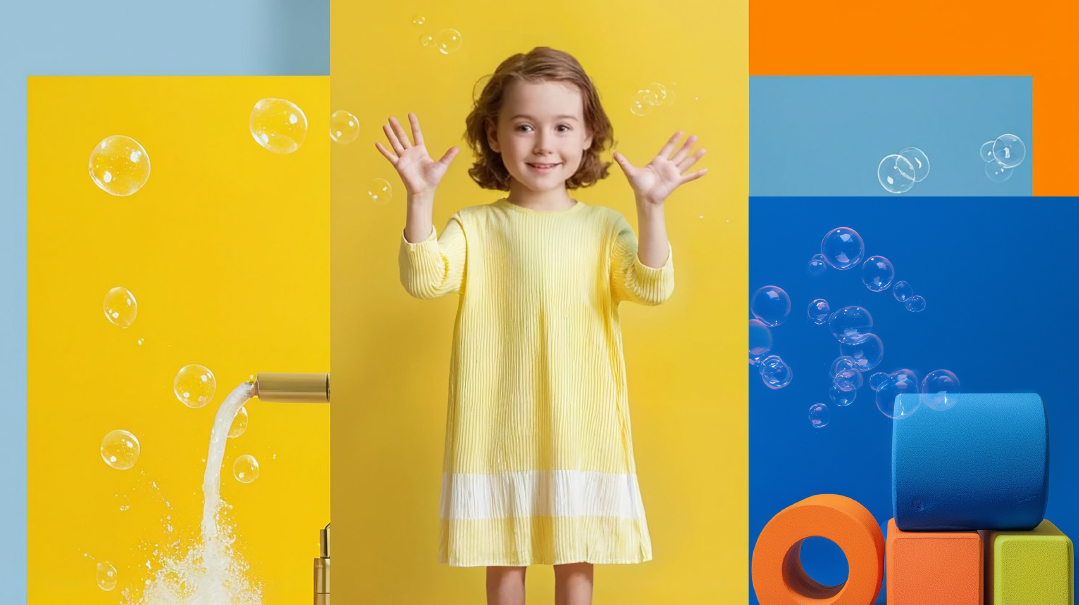Meet… Tamar Shames
| January 2, 2024Tamar Shames helps schools reach struggling students

I’ve always had a soft spot for struggling learners. I’m the oldest of four, and while I enjoyed school, it was more of a challenge for some of my younger siblings. I saw how much their lives and confidence were impacted by being in a system that didn’t really meet their needs. Some of my siblings managed well enough, but for others, there was a long-term negative impact. That’s what sparked my desire to help make the school environment a place where all kids can feel successful.
I majored in education at Barnard College in New York City. The program was highly focused on underprivileged urban populations, so I was doing work with kids who had grown up in deeply dysfunctional situations. It was incredible work, perfect for an idealistic college student. I felt like I was making such a difference and, much to my mother’s chagrin, I initially expressed an interest in working in urban schools or even jails, where I felt I could make a big impact.
Hashem had other plans, though, and shortly before I graduated, I got a phone call from Ramaz, a Modern Orthodox school in Manhattan. They had a resource room teacher who was out on maternity leave, and they needed someone to take her spot. I had a gap of time between finishing my undergraduate degree and starting my Masters, and I thought this would be a good way to spend those six months. Those six months turned into six years.
Saving the World — at Home
Working at Ramaz reignited my desire to give Jewish students a different educational experience than my siblings had. Kids who struggle should be able to find their place in the system and not feel like they need to leave. I realized that if Hashem gave me talents in this area, I should use them for His children. Needless to say, my mother was relieved.
After I got married and our family started to grow, we moved to Chicago, where I grew up. I was interviewing with different schools for a resource job, and at one school, the person interviewing me said, “We’d love to have you here, so I shouldn’t be telling you this, but there’s this organization that’s just getting started called REACH. I feel like you would love their mission.”
Giving Them the Skills
REACH — Resources for Educational Achievement Collaboration and Health — functions as a bridge for all the different special education organizations in Chicago that provide support for struggling learners. The foundational philosophy and methodology of REACH is Collaborative Problem Solving (developed by Stuart Ablon, founder of Think Kids, and Dr. Ross Greene, who wrote the best-selling books Lost at School and The Explosive Child).
The core idea of Collaborative Problem Solving (CPS) is that kids with challenging behavior don’t lack the will to behave well — they lack the skills to behave well. If a child (or adult) exhibits any sort of challenging behavior frequently and consistently, CPS assumes that the reason they’re struggling is because they lack certain skills to meet the expectations of those around them. When we shift our lens and our mindset about why a person is struggling, it impacts how we address it. That’s really the most important piece.
Today, REACH supports 16 different Chicago Jewish day schools, from the left to the right, and everything in between. Back when I came to interview with them in 2013, REACH was in its third year and was just starting to gain traction with the schools. I started off providing direct support to students, specifically working with high school students.
A Triumph
There was one student who reminded me so much of my brother. He was super street-smart and the type who will be 20 times more successful than I someday, but just didn’t fit into the square box of high school. He was reactive and assertive and didn’t have a filter, so he would get himself into trouble all the time.
We would meet during his academic support periods to talk about what work needed to get done and how to get organized, but really, it ended up turning into a lot of therapy sessions. He would vent, I would listen. I was his cheerleader. I would tell him, “I’ve always got your back. I’ll tell you when I think you’ve messed up. And when we need to make things better, I’ll help you problem-solve. But I’m always on your team.” He graduated high school and ended up going to Israel, which was huge.
Now I work as the Director of Professional Development for REACH, and my role is to support the people who work with the kids. I really miss working with students, but now I get to provide coaching and consultation to teachers and principals so that they can increase their toolboxes to support their struggling learners.
This could mean increasing differentiation in the classroom, introducing new methods of co-teaching in inclusive classrooms, guiding teachers through difficult conversations with students, writing goals based on IEPs, considering different professional development opportunities for schools, or helping teachers bring more Social Emotional Learning to their classrooms.
Conventional wisdom says that if you dangle a treat in front of a kid, it’ll motivate them to behave as expected. But struggling kids are already motivated to behave as expected — they want it the most — they simply can’t, for whatever reason. So when they’re told that if they don’t call out in class all week, they’ll get a Slurpee on Friday, what’s going to happen? They want that Slurpee so badly, but the road from here to there is impossible. It’s not a matter of “just try harder” because they don’t have the skills. So they lose motivation and stop trying altogether. Because why bother? This is where Collaborative Problem Solving can make such an impact.
Educating the Educators
Instead of employing a reward and punishment method in this situation, a teacher using CPS will consider the specific triggers or expectations the student is having a hard time meeting. Does the student need help with impulse control or learning to be more flexible? Is there a language or communication element that needs support? Using empathy and reflective listening, the teacher will work with the student to understand his or her perspective. Together, they will work to find solutions that address both the teacher’s and the student’s concerns.
Recently, I had the opportunity to work with a brand-new teacher, whose classroom consisted of all the kids who don’t fit in a regular classroom. It was, understandably, a challenging situation, and we did a lot of coaching together. At the end of the year, she wrote me a note expressing her gratitude for how CPS helped her take a more empathetic approach to her most difficult students. Instead of coming up with solutions alone, she learned to listen to the student, understand them, and then consider what might help, whether it was accommodations, modifications, or anything else.
At its core, CPS is about building positive relationships with students, and that’s the real game changer.
If you could snap your fingers and instantly improve one middah, which one would you choose?
Patience.
If you had an hour of free time every day, how would you spend it?
On getting my doctorate.
What’s something people would be surprised to know about you?
I lived in Germany. My husband grew up there, and we have a lot of hakaras hatov to the community, so when we were newly married, we spent a year working there and living in the Jewish community, which was a meaningful and rewarding experience.
(Originally featured in Family First, Issue 875)
Oops! We could not locate your form.







